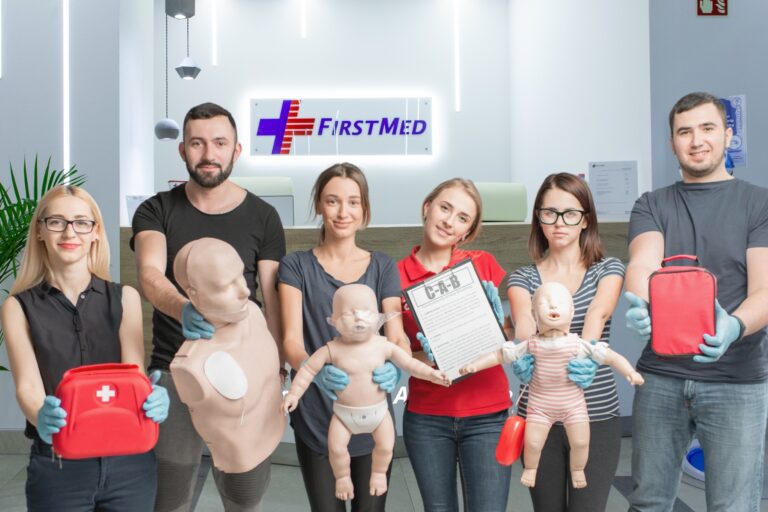Pediatrician or Urgent Care?
Even with minor illnesses or injuries, it can be very frightening to experience that your child is unwell, and it is often difficult to decide whether it is sufficient to call your pediatrician or if it is necessary to take your child into urgent care. In cases of common ailments, such as a mild cough or a cold, mild constipation or diarrhea, or sleep problems, medical attention may not be necessary. In more serious situations, however, it is wise to consult your pediatrician over the phone, and in certain cases, it is best to head to a clinic or hospital immediately.
Call Your Pediatrician, if… :
- a fever of 38°C (100.4°F) or higher in infants less than 2 months old
- a rash accompanied by a fever
- an earache accompanied by a fever
- fever accompanied by repeated vomiting
- trouble swallowing or a severe sore throat
- sharp or ongoing pain in the stomach
- blood in the urine or feces
- vomiting or diarrhea that does not cease in a few hours
- discharge or drainage from the ear
- inability to sleep or drink
- limping or difficulty moving an arm or leg
- flu symptoms
Before you call your pediatrician:
Be prepared to write down any instructions from your doctor and try to make sure your child is nearby, in case you need to answer any questions about them. Be ready to provide information about your child’s health, including their medical conditions, medications, immunization records, and currently relevant symptoms, such as their temperature. In the case of the following conditions, however, it is wise to take your children to the clinic right away.
Immediate Medical Care required for:
- minor cuts or burns
- sprains or broken bones
- animal bites
- mild, non-life-threatening allergic reactions
- trouble breathing
Three hours that could save your child’s life
FirstMed offers monthly Pediatric First Aid courses. Our course teaches, or refreshes, your knowledge of basic first aid is specifically designed to equip you with skills to provide first aid or treatment to an infant or a child at the scene of an accident up until the arrival of qualified help.
This focused, three-hour course consists of a mix of both theory and hands-on practice, where you can learn important life-saving skills like:
- how to recognize signs of respiratory and/or circulatory failure
- what to do with a choking child if the five back blows fail
- the sequence of Life Support
- and much more
Sign up for our next Pediatric First Aid Course.




